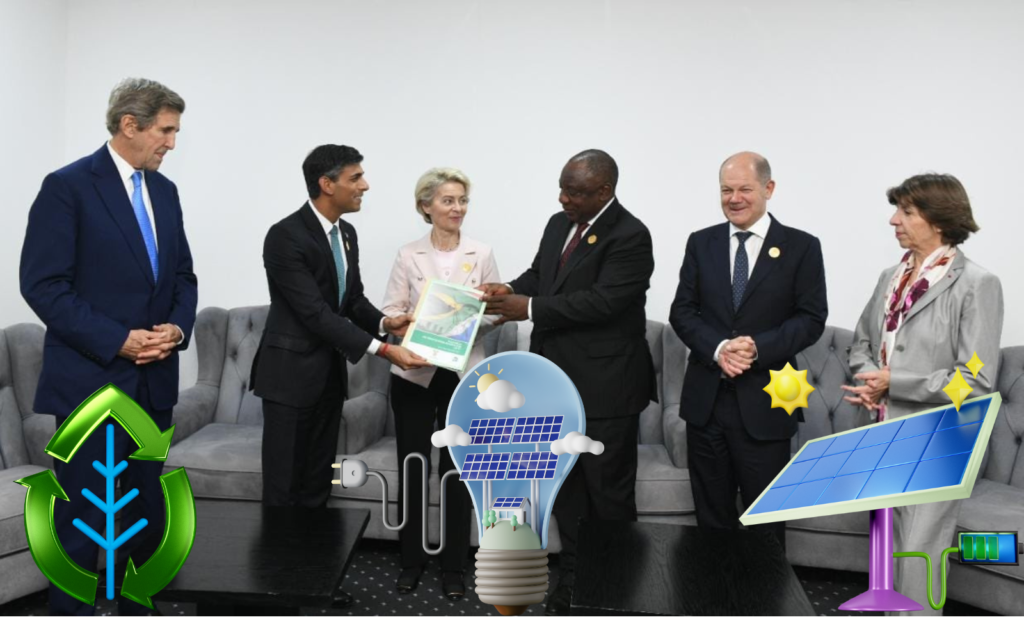South Africans may eventually be able to let go of our coal dependency and the load shedding that goes with it. In a potential landmark deal that could see the transition from fossil fuels to green energy, South Africa, with its partners, launched the US$8.5 billion Just Energy Transition Plan at the United Nations’ 27th Climate Change Conference (COP27) taking place in Egypt.
The plan has been backed by the United Kingdom, United States, France, Germany and the European Union.
As countries plan to go clean in an effort to save the planet, South Africa plans to use 90% of the funds to decommission coal-powered plants and develop infrastructure for renewable energy while strengthening the grid. Strengthening the grid infrastructure could also be the answer to the country’s load-shedding woes.
President Cyril Ramaphosa, European Union president Charles Michel, and other partners gave the final nod on the plan this week. This follows discussions and negotiations that have been ongoing over the past year between the partners.
Read More: Blocked websites, surveillance fears at COP27 in Egypt
Is the money enough?
The money signed off at COP27 this week is not enough to solve South Africa’s problems. The country will need more money to get us out of the ongoing rolling blackouts. A lot more.
The Energy Transition Plan will target particular issues in the next five years. $7.6 billion is targeted towards electricity investment, $700 million will develop green-hydrogen projects and $200 million will go towards the electric-vehicle industry.
“It was at COP26 in Glasgow that we set out to establish a historic partnership with France, Germany, the United Kingdom, the United States and the European Union in support of our country’s transition to a low-carbon, climate-resilient society,” said Ramaphosa in a statement on Monday.
JET Investment Plan Meeting, UN Climate Change Conference 2022 https://t.co/f6zUUZO9jw
— Presidency | South Africa 🇿🇦 (@PresidencyZA) November 7, 2022
Ramsphosa says according to the plan, South Africa will need around US$98 billion to archive its energy transition targets over the next five years set out in the Nationally Determined Contribution.
He says the plan will have sectors including “the electricity sector, green hydrogen and new energy vehicles”. It’ll also include skills development, investment in the local production of green hydrogen and electric vehicles, investing in electricity transmission and distribution networks and expanding renewable energy sources.
“To succeed, we will need to ensure that financial support includes a significantly larger grant funding component,” says Ramaphosa.
Source: Bloomberg Africa.




